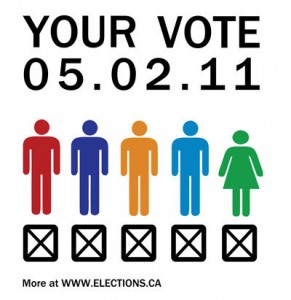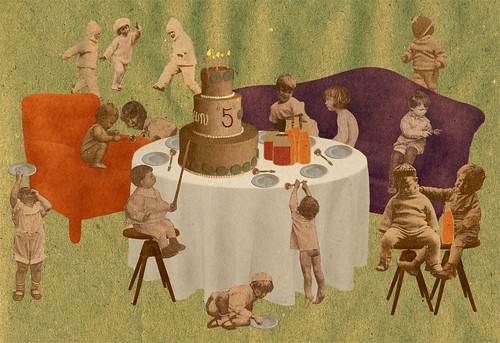 Canada’s 41st election started out sort of dull and predictable (c.f. the lack-lustre debates). But, the recent news about the NDP’s surge has made things pretty darn interesting. I’ve been glued to the polls and news reports. (This is my way of saying: I’m too distracted to keep up the pace I set on this site, right now. Regular posts will resume next week.)
Canada’s 41st election started out sort of dull and predictable (c.f. the lack-lustre debates). But, the recent news about the NDP’s surge has made things pretty darn interesting. I’ve been glued to the polls and news reports. (This is my way of saying: I’m too distracted to keep up the pace I set on this site, right now. Regular posts will resume next week.)
I’ve been looking around for ways Canadian libraries have supported voter engagement and turnout. Libraries across the country have put up information tables, dug out history and contemporary politics books for displays, and posted information and links online.
Is there more the library community can do than displays and links? What about cultivating the next generation of young voters? Are there election themed story-times out there? Are we engaging new Canadians in their new home’s politics?
The LIS community should be thinking of ways to help create and nurture engaged political communities. They’ll come in handy when libraries need protection from book banners and budget hawks. This will take more than just blog posts and Bristol board displays during election season. But, the results could be huge!
Libraries are political (but not necessarily partisan). History has shown how access to books and information (not to mention community space and communication tools) are powerful political tools. To ignore this is to ignore the important role libraries have had and can have in the direction of our nation and our world.
We have to play a role in shaping the future, if we want to have a role to play in the future.
Canada Votes May 2nd!!!
***Find out More***
Party websites:
www.liberal.ca
www.conservative.ca
www.blocquebecois.org
www.ndp.ca
www.greenparty.ca
CBC’s Reality Check on Platform Promises
Register to Vote:
www.elections.ca










